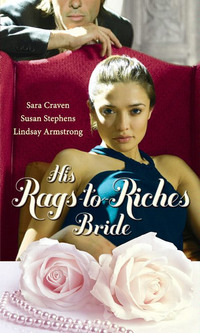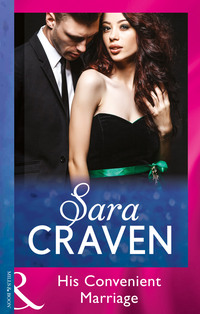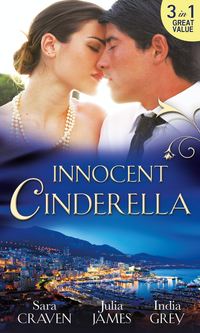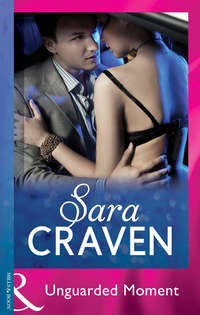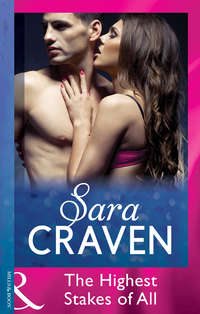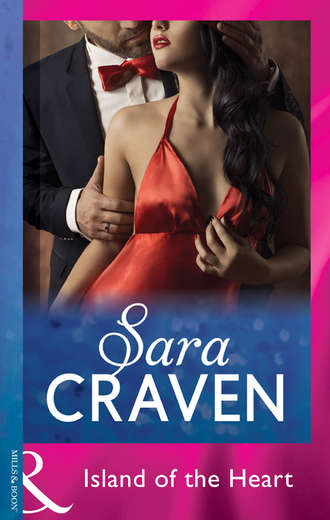
Полная версия
Island Of The Heart

Island of the Heart
Sara Craven

www.millsandboon.co.uk
Former journalist SARA CRAVEN published her first novel ‘Garden of Dreams’ for Mills & Boon in 1975. Apart from her writing (naturally!) her passions include reading, bridge, Italian cities, Greek islands, the French language and countryside, and her rescue Jack Russell/cross Button. She has appeared on several TV quiz shows and in 1997 became UK TV Mastermind champion. She lives near her family in Warwickshire – Shakespeare country.
Table of Contents
Cover
Title Page
About the Author
CHAPTER ONE
CHAPTER TWO
CHAPTER THREE
CHAPTER FOUR
CHAPTER FIVE
CHAPTER SIX
CHAPTER SEVEN
CHAPTER EIGHT
CHAPTER NINE
CHAPTER TEN
Endpage
Copyright
CHAPTER ONE
THE LAST CHORDS sang their way triumphantly into the echoing silence, and Sandie Beaumont lifted her hands from the keyboard as the applause began.
The adrenalin which had carried her through the performance was already starting to subside as she rose and bowed to the clapping audience. She kept her hands hidden in the folds of her violet taffeta skirt to disguise the fact that they were shaking.
Listening intently, she tried to judge the audience reaction to her playing. It was enthusiastic, but was it the kind of acclaim accorded to a winner? Sandie wasn’t sure.
She deliberately avoided even a glance towards the row of judges seated behind their table at the front of the auditorium. She would know their verdict soon enough.
‘It’s not the end of the world.’ That was what one of her fellow contestants had said as he’d left the waiting-room backstage where they were all assembled an hour earlier.
And in a way it wasn’t. It was a piano contest in a newly established music festival, that was all. A first rung on the ladder to such glories as the Leeds Piano Competition.
But for me, Sandie thought, as she bowed again, and made her way with forced composure off the platform, for me, it could easily be the end of everything.
There was a long mirror at the end of the corridor leading back to the dressing-rooms. She’d been too nervous to use it on her way to the platform, but she paused now to glance at herself, swiftly and clinically. Too pale, she thought. She should have used more blusher. In the dim light of the passage, with her silvery blonde hair hanging straight and shining below her shoulders, she looked almost ghostly.
But the dress was wonderful. It had been an extravagance, but it was worth it, accentuating, as it did, the colour of her own violet eyes. It had made her feel good, given her the confidence to believe that everything was going to be all right. As if a career in music, as she’d always dreamed, was actually within reach.
Her hands balled into fists of tension, and she swallowed as she turned away. Well, she would soon know. She’d been the last competitor.
Back in the big room, where the others waited, no one was saying much. They were all on edge now, anticipating the call which would take them back on stage for the adjudication. Most of them seemed to know each other already—to be able to judge the standard they were up against. She, Sandie, was the outsider, the unknown quantity. The local girl taking her first step towards national fame—or instant obscurity.
Her parents had been quite adamant.
‘My dear, you don’t realise the kind of odds you’re up against,’ her father had said. ‘Yes, you’ve got talent, I don’t doubt, but that’s not enough to make you a star at international level. You may be Mrs Darnley’s prize pupil, but what does that really mean?’
‘I don’t know,’ Sandie had returned desperately. ‘But you’ve got to let me find out.’
Her parents exchanged uneasy glances. She knew what they were thinking. They were remembering Sandie’s grandmother, the Alexandra for whom she had been named, whose considerable musical talent had never taken her further than the orchestras of second-rate touring variety shows and seaside concert parties. For years she’d soldiered on, declaring her big break would come—only it never had, and the realisation that it never would had led to increasing bouts of depression until her death, still in early middle age.
They don’t want that to happen to me, Sandie thought. They don’t want me to break my heart, searching for some big time which may never come.
Aloud, she said, ‘You’ve got to let me have my chance.’
‘Then we will.’ Her father knocked out his pipe in the ashtray. ‘Mrs Darnley’s entered you for the festival. If you can win it, you shall have your chance—music college and the rest—whatever it takes. If you don’t win, then you give up all thoughts of a career as a pianist. Is it agreed?’
‘All or nothing—just like that?’ Sandie stared at them pleadingly. ‘Mum, I …’
‘Your father and I are in total agreement.’ Mrs Beaumont spoke more gently than her husband. ‘It’s for your own sake, darling. After all, Sandie, you’re nineteen now. Most professional musicians started training years before you did.’
‘That’s hardly my fault.’ Sandie remembered the uphill struggle to persuade her parents to allow her to have piano lessons at all.
‘No,’ her mother agreed. ‘But you can’t blame us for being cautious. It’s time you put all this nonsense behind you, and trained for something—settled down. If it has to be music, you could always teach. You don’t have to go on being a legal secretary, if you really hate it so much.’ She gave Sandie an anxious smile. ‘And you can always play the piano for your own amusement.’
Sandie had winced.
Mrs Darnley had been sympathetic, but had refused to take up the cudgels on Sandie’s behalf.
‘Your parents are doing what they feel is right,’ she said. ‘I can’t argue about their natural concern for you. And they could have a point.’
Sandie stared at her. ‘But I thought you believed in me,’ she said, biting her lip. ‘Don’t you think I can make it?’
Mrs Darnley sighed. ‘Sandie, you’re the best pupil I’ve ever had, but that’s all I can say. You’ve outgrown me, my dear. From now on, you need specialist coaching that I’m not qualified to give you—master classes. It all costs money, and if your parents aren’t prepared to make a contribution …’ She left it at that.
Now, weeks later, Sandie looked under her lashes at her fellow competitors and wondered. They all wanted to win—that went without saying. But did any of them have the compulsive, driving need to come first that she possessed?
She thought, My whole future depends on this.
It seemed an eternity before the recall to the platform came. They filed on and stood trying to look nonchalant and modest at the same time. Sandie’s legs were shaking, and her mouth felt dry. She wanted it over with. She wanted to know.
The judges moved on to the platform, and she studied them unobtrusively, trying to read their faces, to see if they looked longer in one direction than another.
The tall man standing at the end caught her eye and smiled, and she felt herself blush.
She knew who he was, of course. They were all musical celebrities, but he was the star. Crispin Sinclair, the youngest of the four, had been a young virtuoso pianist himself some years before, spoken of as a prodigy. He was one of Sandie’s heroes, and she had several of his recordings. But in recent years, he’d turned from the concert platform to composition. He’d written a modern opera based on Sean O’Casey’s Juno and the Paycock, which had been received with acclaim on both sides of the Atlantic, as well as a host of shorter works, many of them commissioned. One of them was to be performed at the end of the festival, and Crispin Sinclair himself was going to conduct.
It was also rumoured that, under different names, he’d written music for various well-known pop groups.
But he’d had a head start in the musical world, Sandie thought, staring embarrassedly at the floor. His mother was Magda Sinclair, the world-famous mezzosoprano and opera star, and his sister Jessica was already a noted cellist.
No one in his family would have ever jibbed at his choice of occupation. He would have been encouraged and nursed along since babyhood, and the first signs of precocious talent.
Whereas I didn’t even have a piano until I was thirteen, Sandie thought, with a sigh.
All the same, she couldn’t help wondering if the smile he’d sent her held any significance.
She tried to concentrate on what the chairman of the judging panel was saying. There were the usual platitudes about the excellent organisation, and thanks to the patrons and sponsors before he turned to ‘the wealth of talent here tonight,’ ‘the distinctive performances’, ‘the difficulty of reaching a decision, although the panel had been unanimous …’
Oh, get on with it, Sandie prayed silently, her insides knotting with tension.
‘The results will be in reverse order,’ he was saying, and paused in anticipation of the laugh. ‘Just like Miss World.’ He consulted the paper in his hand. ‘In third place—Jennifer Greenslade.’
Applause broke out. Sandie watched the other girl, no more than fourteen, go up to get her prize, her face flushed with pleasure.
‘And in second place—’ the chairman paused theatrically, making the most of it, ‘Alexandra Beaumont.’
More applause. Sandie heard it from a distance—from some limbo of pain and disappointment.
She had to force herself to move, terrified that her legs would betray her, and that she’d collapse there and then in front of them all. But of course she didn’t. She took her prize envelope, shook hands, and managed to smile and say something polite as she was congratulated.
She didn’t see or hear who came first. She went back to her place, alone, lost in a little nightmare world of despair and failure.
She couldn’t look at the audience, at the place where she knew her parents were sitting. They’d be disappointed for her, she knew, but relieved as well. She’d done well, and justified Mrs Darnley’s good opinion, but not quite well enough, so now the whole nonsensical idea could be abandoned, and life return to normal.
Normality, she thought bleakly. A teachers’ training college, or a solicitors’ office. That was the choice now.
She was thankful when the ceremony was over and she could escape to the privacy of the small dressingroom she’d been allocated. She pulled off that mockery of a taffeta dress, slinging it carelessly on to a chair in the corner before struggling back into the sweatshirt and jeans she’d worn earlier.
The tap on the door startled her. She tugged the sweatshirt down into place, scooping her long hair free of its collar. She supposed it would be her father and mother, knocking tactfully in case she was upset. But she was too aching, too stunned to cry. Tears would come later, she thought.
She called, ‘Yes?’ and the door opened, and Crispin Sinclair walked in.
‘So this is the right room.’ When he smiled, his teeth were very white. ‘I came to offer my condolences. It was a very near thing, actually.’
‘So near and yet so far,’ Sandie said. She tried to speak lightly, but her voice broke a little in the middle.
‘So I understand,’ he said. ‘I’ve been having an illuminating chat with your teacher, and she told me it was make or break for you. That’s really tough.’
He was one of the most attractive men Sandie had ever encountered, dark-haired and blue-eyed, and his smile was devastating. Suddenly the dressing room seemed tinier than ever.
She hastily picked up a comb and began to tug it through her hair. ‘Well,’ she said, ‘you win some, you lose some.’
His brows lifted. ‘Are you really that philosophical about it?’
‘No,’ she said baldly. ‘But I’ve no other choice.’
‘Maybe you have at that,’ Crispin Sinclair said slowly. ‘That old fool Gregory said we were unanimous, but that was public relations. Actually, I was in there fighting for you. And now that I know how important that win would have been, I have a proposition for you.’
‘For me?’ She stared at him. ‘I don’t understand …’
He laughed. ‘I haven’t explained it yet.’ He paused. ‘But first, a little criticism. You performed the set pieces well, but your own choice was unadventurous, to say the least. That could have lost your first place.’
‘It’s a difficult movement …’
‘Not when your basic technique’s as good as yours. You should have taken a stance—gone for broke, like the guy who won did with the Prokofiev. You’ve been well taught, but now you need more.’ He smiled at her equably. ‘I think it’s time I took you on myself.’
Sandie’s eyes widened in incredulity. ‘You—want to teach—me? But why?’
‘I think it could be rewarding. I also think you deserve another chance, rather than having to rely on this sudden death situation you’ve been in. No one at your level can do her best with that kind of threat hanging over her.’
He scooped the taffeta dress off the chair and on to a hanger in an undoubtedly practised movement. ‘Pity to spoil it, because it’s a good platform dress—catches the light well, but doesn’t take over.’ He pushed the chair towards her. ‘Sit down. You look as if you need to.’
Sandie subsided in limp obedience. She said in a little rush, ‘I’m a junior secretary with a law firm. I don’t know the kind of fees you charge, but I couldn’t afford even half of them.’
‘Well, there’s a way round that.’ Crispin Sinclair seated himself on the dressing stool. ‘My family have taken themselves off for their usual summer break in Connemara, to rest and prepare for the next concert season, but my mother’s regular practice accompanist has just got married, silly bitch, and to an oil man who’s whisked her off to Venezuela. This has left Mama in quite a spot. She’s inclined to be temperamental, but she liked Janet and she was used to her.’ He paused. ‘If you came to Killane, you could take Janet’s place, and—work your passage, as it were.’
‘But I don’t know the first thing about accompanying anyone,’ Sandie protested feverishly. ‘It’s a skilled profession.’
‘You’re talented and intelligent, and you wouldn’t be appearing in public, after all. Magda would soon teach you the ropes.’ He grinned. ‘Blood on the keyboard and all that. Does the thought put you off?’
‘No,’ she denied instantly. Summer, she thought, in a house filled with music. She paused. ‘Did you say—Connemara?’
‘Yes. Magda’s first husband was Irish, and he left her a life interest in the house. He was killed in a hunting accident while Flynn was still a baby. She’s two husbands further on now, but she still spends her summers at Killane, although the damp can’t be good for her throat. The house really belongs to Flynn, my half-brother, of course, but he’s rarely there.’
‘Flynn.’ Sandie tried the name. ‘Is he a musician too?’
‘God, no!’ Crispin’s laugh was faintly derisive. ‘Magda’s always said he’s some kind of changeling. He hasn’t a note of music in his body, even though he spent his formative years touring with her. She’d put her career into cold storage when she married, but took it up again in a hurry when she found herself a penniless young widow. And the rest, as they say, is history.’
‘So what does he do?’
‘My father’s family were merchant bankers, and they lured him into commerce.’ Again Sandie sensed a faint sneer. ‘Now he’s a high-powered financial consultant, dealing mainly with tax advice for the rich and famous. He even keeps my mother on the straight and narrow. God only knows where he gets it from. Neither she nor his father had any head for figures at all,’ he added with a shrug. ‘But that’s enough about Flynn. Are you prepared to give up your summer to a madhouse in the west of Ireland?’
Sandie said, with a catch in her voice, ‘It sounds wonderful. But what will your mother say—having a stranger foisted on her?’
‘You won’t be a stranger. I’ll explain the position, and you’ll arrive with the backing of my warmest recommendation. How’s that?’
‘It can’t be that simple.’
‘Where are the complications?’
‘Well, have you ever had a private pupil before? I mean—won’t your family think it’s odd, if I suddenly appear …?’ She looked away, reddening slightly.
‘I know what you mean, Miss Alexandra Beaumont.’ Crispin sounded amused, then his voice sobered. ‘I’m asking you to Killane because I think you have a worthwhile talent which you won’t otherwise have the opportunity to exploit.’ He paused, then said deliberately, ‘Let’s leave any other considerations in the lap of the gods, shall we? Now, do you accept my proposition?’
Sandie’s heart was thumping swiftly and painfully against her ribs. She could feel other objections crowding in. She was assailed by nervousness and exhilaration at the same time.
She said, ‘Yes, I do. But I don’t know what my parents will say.’
‘Leave them to me,’ he said. ‘I’ll handle them.’ He rose, and so did she. ‘Now, shall we seal our bargain in the time-honoured way?’
He held out his hand, and Sandie put her fingers into his, only to find herself drawn forward to receive Crispin’s light kiss on her mouth.
He said, ‘I’ll be in touch,’ then the dressing room door closed behind him.
Sandie stared after him, her hand lifting involuntarily to touch her lips.
She thought, A summer in Connemara. It sounds like magic—too good to be true. She hesitated. But after the summer—what then?
She shrugged. I’ll wait and see, she told herself, and let the remembrance of Crispin Sinclair’s smile dispel that faint chill of anxiety inside her.
A fortnight later, still dazed at the total upheaval in her life, Sandie found herself descending from the plane at Shannon.
Looking back, she realised she had never thought her parents would agree, and she hadn’t the slightest idea how Crispin had persuaded them. Neither, she thought, had they. But she was aware that he’d accentuated her dubious role as his mother’s accompanist rather than her status as his pupil, and although this wasn’t exactly a deception, it had caused her a slight flicker of uneasiness.
Inside the terminal building, she collected her luggage and made her way to the Aer Lingus desk as Crispin had instructed.
‘Excuse me,’ she addressed the green-clad girl, who looked up smiling at her approach. ‘My name is Beaumont. Someone is meeting me here.’
The girl nodded. ‘Your man was just enquiring for you,’ she said. She looked past Sandie, and beckoned.
Sandie turned to find herself confronted by a short, squat individual. His face was as brown and wrinkled as a walnut, and his greying hair still held a tinge of fierce red. He was staring at Sandie with an expression of incredulity that was too disconcerting to be amusing.
‘It’s you, is it, I’m to take to Killane?’ His tone held lively dismay.
Sandie tilted her chin a little. ‘I’m Mr Sinclair’s guest, yes,’ she returned coolly. ‘How do you do, Mr—er—?’ She held out her hand.
‘O’Flaherty will do—without the Mister.’ The man ignored her hand, and picked up her cases. ‘Guest,’ he added with a faint snort. ‘Well for Mr Crispin that himself’s not at home to see this.’ And on this obscure utterance, he turned and strode towards the main doors, heading for the car park. Sandie had to run in order to keep up with him.
She said breathlessly, and a little desperately, ‘I am expected, aren’t I?’
‘They’re expecting someone, surely.’ Sandie’s cases were fitted into the back of a large estate car. ‘In you get, now. We have a fair drive ahead of us.’
Sandie got into the passenger seat and fastened its belt. It was not the introduction she’d expected to Ireland of the Hundred Thousand Welcomes, she thought, trying to feel amused, and failing.
‘It’s a beautiful day,’ she tried tentatively, as they won free of the airport’s environs, and embarked on the road to Galway.
‘It won’t last,’ was the uncompromising reply, and Sandie sighed soundlessly, and transferred her attention to the scenery.
It took well over an hour to reach Galway. Beyond the city, the road narrowed dramatically, and the weather, as O’Flaherty had predicted, began to deteriorate. Ahead, Sandie could see mountains, their peaks hidden by cloud, and the whole landscape seemed to be changing, taking on a disturbing wildness now that the narrow grey towns had been left behind.
O’Flaherty had wasted no time with his driving so far, but now he slowed perceptibly, as the rattle of loose chippings stung at the underside of the car. Moorland rolled away on both sides of the road, interspersed with a scatter of small white houses, most of them with thatched roofs. Here and there, the earth had been deeply scarred by turf cutting, and piles of turfs stood stacked and awaiting collection near the verges. There were great stretches of water too, looking grey and desolate under the lowering sky. Some of the lakes had islands, and Sandie, fascinated, spotted the ruined stones of an ancient tower on one, half hidden by trees and undergrowth. She would have loved to have asked its history, but after sneaking a look at O’Flaherty’s forbidding countenance she decided to save her questions for Crispin.
She was frankly puzzled by the little man’s hostility, and it made her apprehensive about her reception generally when eventually they reached their journey’s end. If they ever did, she thought, stretching her cramped legs in front of her.
‘Too long a ride for you, is it?’
‘No, I’m enjoying it,’ Sandie said mendaciously. ‘The scenery’s fabulous, isn’t it? So romantic.’
Her innocent comment was greeted by another snort, and silence descended again.
There was little other traffic—some cyclists, a lorry piled high with bales of hay, a few cars and a couple of horseboxes. Occasionally they were brought to a halt by sheep and cattle wandering across the road in front of them.
Rain splattered across the windscreen, and O’Flaherty swore under his breath, and flicked on the wipers, before turning off on to a side road bordering yet another enormous lake. The clouds were down so low now that only the lower slopes of the mountains were visible.
‘What are they called?’ Sandie asked, pointing.
‘The Twelve Pins.’
The road unwound in front of them, like a narrow grey ribbon, edging the water. Sandie watched the rain dancing across the flat surface of the lake, and shivered a little, not from cold, but a sudden swift loneliness.
If she was at home now, she thought, she would probably be helping her mother in the garden, with its neat lawns and beds and well-pruned trees. And instead, here she was driving through a wilderness of water and peat bogs, to what?
She hadn’t expected Crispin to be at the airport to meet her, but she wished with all her heart that he had been. Perhaps she wouldn’t have been feeling quite so strange—and desolate, she thought swallowing a lump in her throat, as she realised just how far she was from home and everything familiar.
‘There’s Killane,’ said O’Flaherty abruptly, and gestured towards where a broad promontory jutted out into the lake. Peering forward, Sandie could see a thin trail of smoke rising above the clustering trees and, as they got closer, could make out the outline of a house. He turned a car across a cattle grid, through empty gateposts, and up a long drive flanked on each side by tall hedges of fuchsia, growing wild in a profusion of pink, crimson and purple.
And then the house was there in front of them, big and square, like a child might draw, with long multi-paned windows. Stone steps, guarded by urns filled with trailing plants, led up to the double doors of the main entrance. It looked grand, forbidding and slightly shabby, all at the same time, Sandie decided wonderingly.




